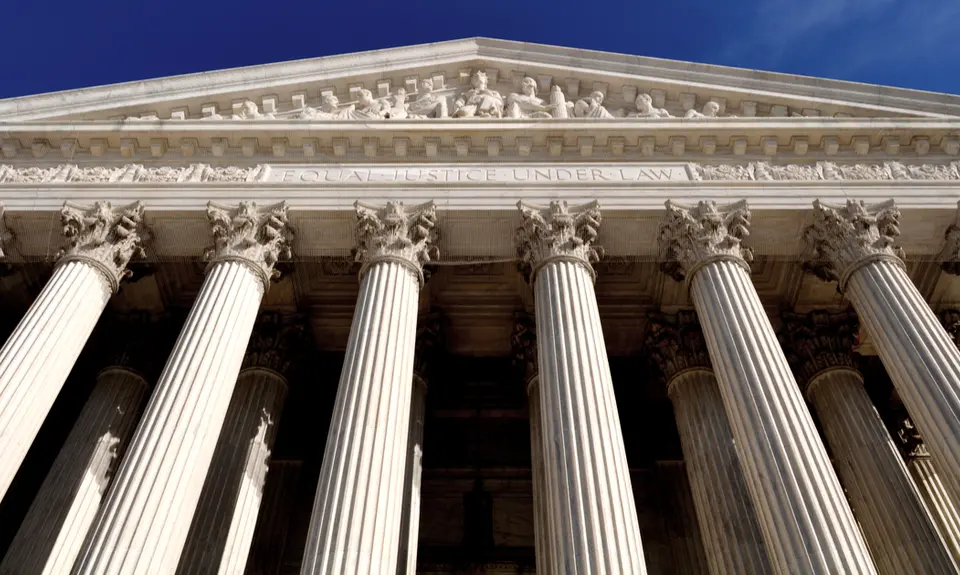“Confirmed Judges, Confirmed Fears” is a blog series documenting the harmful impact of President Trump’s judges on Americans’ rights and liberties. Cases in the series can be found by issue and by judge at this link.
Trump Ninth Circuit judge Patrick Bumatay tried to excuse a company that cut pension contributions for its workers without notifying or bargaining with the union, which the National Labor Relations Board (NLRB) found to be an unfair labor practice. The majority rejected Bumatay’s argument and, in an opinion by George W Bush nominee Milan Smith, upheld the NLRB ruling in Delta Sandblasting Co., Inc. v. NLRB.
Delta Sandblasting is a company that provides marine vessel painting and sandblasting services. In March 2016, without prior notice to or bargaining with the union that represents its workers, Delta substantially cut its contributions to a pension fund covering its employees, claiming that it did not “have the money” to pay the “mandatory” amount that was due.
The union representing Delta workers filed a charge of unfair labor practices against Delta with the NLRB, contending that the company had violated its obligations under a collective bargaining agreement (CBA). After a hearing and the presentation of evidence, an administrative law judge (ALJ) concluded that Delta’s “unilateral” pension payment cut, without giving the union notice or an opportunity to bargain, was a prohibited unfair labor practice under federal law. The ALJ did not rule on an argument made by Delta that its payments before March 2016 (referred to as “Schedule A” payments) were part of the CBA or contained in another specific written agreement, explaining that pursuant to a previous NLRB ruling in another case, Delta’s failure to notify and bargain with the union was an unfair labor practice in any event.
On appeal, the NLRB affirmed the result of the ALJ’s ruling. It did consider and reject Delta’s “written agreement” argument, finding that the Schedule A pension payment rates were incorporated into the CBA, which all parties agreed still applies although it had technically expired. Delta appealed to the Ninth Circuit.
In an opinion by George W. Bush nominee Milan Smith, the Ninth Circuit upheld and enforced the NLRB ruling by a 2-1 vote. Smith explained that the NLRB’s factual findings, including the finding that the pre-March 2016 Schedule A pension payment rates were incorporated into the CBA, were properly supported by “substantial evidence.” This included testimony from the company and union bargainers that they had in fact incorporated the Schedule A pension payment rates into the CBA in December 2014, as well as testimony that Schedule A was used to make pension contribution payments for “nearly two years.” Based on the facts and the law, the majority concluded that Delta “clearly committed an unfair labor practice” when it drastically cuts its pension payments “without notifying or bargaining with” the union.
Trump judge Bumatay dissented. He asserted that the NLRB “fell far short” of its obligation to provide a “reasoned explanation” as to why its factual findings were different than those of the ALJ. At the very least, he maintained, the case should be remanded for the NLRB to provide such an explanation.
The majority made clear that “[w]e disagree” with Bumatay’s claim. To the contrary, the majority went on, the NLRB ruling made “amply clear the basis for its findings,” including the testimony about the incorporation and use of Schedule A for pension payments in 2014-16. Even when “considered under a more critical eye,” the majority concluded, the NLRB finding that Schedule A was incorporated into the CBA was “supported by substantial evidence” and was valid.
As a result of the majority’s ruling, the rights of workers will be vindicated, and Delta will be required to remedy its unfair labor practices of cutting pension contributions without notice and bargaining with the union. If it had been up to Bumatay, however, no such relief would now be provided to the Delta workers.
